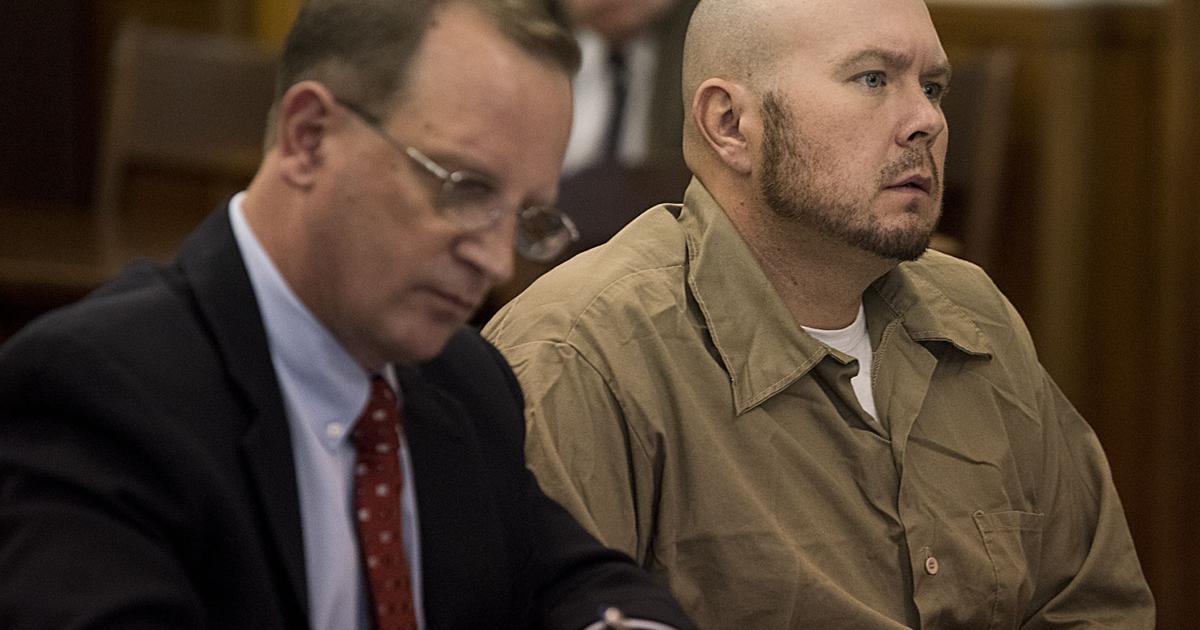Prosecutors said they plan to seek the death penalty for a man accused of killing four people last summer in the small northeastern Nebraska community of Laurel.
Jason Jones, 42, was charged with four counts of first-degree murder in the August killings the Nebraska Attorney General’s Office said would justify a death sentence.
People are also reading…
Jones, who investigators say shot and killed Gene Twiford, 86, Janet Twiford, 85, Dana Twiford, 55, and Michele Ebeling, 53, is being represented by the Nebraska Commission on Public Advocacy in the case.
Created in 1995 to provide criminal defense services for high-profile cases including first-degree murder, child abuse resulting in serious bodily injury or death, sexual assault, robbery, or kidnapping, the commission has a two-fold mission.
First, it creates a stable of defense attorneys capable of ensuring defendants’ constitutional rights to legal counsel and a fair trial are protected in areas of the Cornhusker state where there may not be any other attorneys qualified to do so.
Second, the commission reduces the cost to rural counties and thereby lessens the impact on property taxpayers.
A combination of factors in recent years — the switch from general funds to a court-assessed fee and declining numbers of case filings across the state — has put financial strain on the commission’s ability to meet the needs throughout the state, however.
Jeff Pickens, chief counsel for the commission, said fewer case filings have meant a $540,000 drop in revenue between the 2008-09 fiscal year budget ($1.2 million) and the 2021-22 fiscal year budget ($747,000).
At the same time, in order to continue providing criminal defense services across the state the commission has had to dip into an emergency cash fund to cover expenses every year since 2014-15.
Pickens said the cash fund had a little more than $15,000 in it at the end of the 2020-21 fiscal year, prompting the commission to seek an emergency transfer from the Legislature.
“If we had not received the $520,000 transfer in July of 2021, we would have had to further reduce our staff,” Pickens said in an email.
Two state senators have proposed legislation to help fix the problem this year. One of those bills will be heard before the Judiciary Committee on Thursday.
The bill (LB555) from Sen. John Cavanaugh, a defense attorney in Omaha, would fund the commission through state appropriations once more, reverting a change made by the Legislature nearly two decades ago.
Through a companion bill (LB554) the $3 fee collected on each case filing, which has been used to support the commission since 2005-06, would be funneled into the Indigent Defense Fund, a cash fund that could be used to offer legal aid and other services, or pay for grants, Cavanaugh said.
“I, personally, would like to eliminate court fees, but that’s harder to do,” Cavanaugh said in an interview. “The real important thing is the value they bring to rural Nebraska. If the commission doesn’t exist, these counties could have to shell out an unplanned for $800,000 for legal fees.”
A separate bill (LB767) from Sen. Barry DeKay of Niobrara, which has been referred to the Judiciary Committee but has not set a hearing date, would increase the indigent defense fee from $3 to $8.
DeKay, whose district includes Cedar County, where Jones was charged with the quadruple homicide, said he introduced the bill to ensure the commission was adequately funded, but said he would support Cavanaugh’s bill, too.
“It doesn’t matter to me how they get the funds,” DeKay said. “It matters to me that we can get the funds to cover these trials so we can help these counties.”
Raising the independent defense fee is a move the Legislature has considered before. A 2021 bill (LB150) would have boosted the fee by $2, but was opposed by several senators as well as then-Gov. Pete Ricketts, who said he preferred the commission to be funded through general funds.
Gov. Jim Pillen has signaled his support for the commission to be funded through court-assessed fees, however.
Pickens said the commission has been down an attorney since May 2022, which has resulted in lower expenses for the office, but has also limited what cases the commission can accept.
Since its inception in 1995, the commission has handled more than 1,500 cases in 72 counties, including 184 murder trials in 53 counties.
“We have been doing more with less for a long time,” Pickens said. “Ethically, we are not allowed to take more cases than we can competently handle. We need to be fully staffed again with six lawyers.
“If we had a seventh lawyer, we could take on more cases and provide more property tax relief,” he added.
City Hall: The debate over sober living houses continues for both local and state officials
Parents’ bill of rights legislation divides public at Nebraska legislative hearing
Pillen income tax rate cuts could benefit at least half of Nebraska tax filers
Gov. Jim Pillen urges Nebraska lawmakers in his State of the State address to approve his tax policy as a way to make Nebraska more competitive.
Reach the writer at 402-473-7120 or [email protected].
On Twitter @ChrisDunkerLJS
Related Posts
- Better And Fairer Access To Legal Assistance
- Following Up: Legal aid clinics call on city for more tenant protections
- Premier of Tasmania - Strategy released to assist Tasmanians in need with free or low-cost legal services
- New name, same quality legal services for this longstanding Courtenay firm – Comox Valley Record
- The Need of Privacy Certifications for Lawyers

